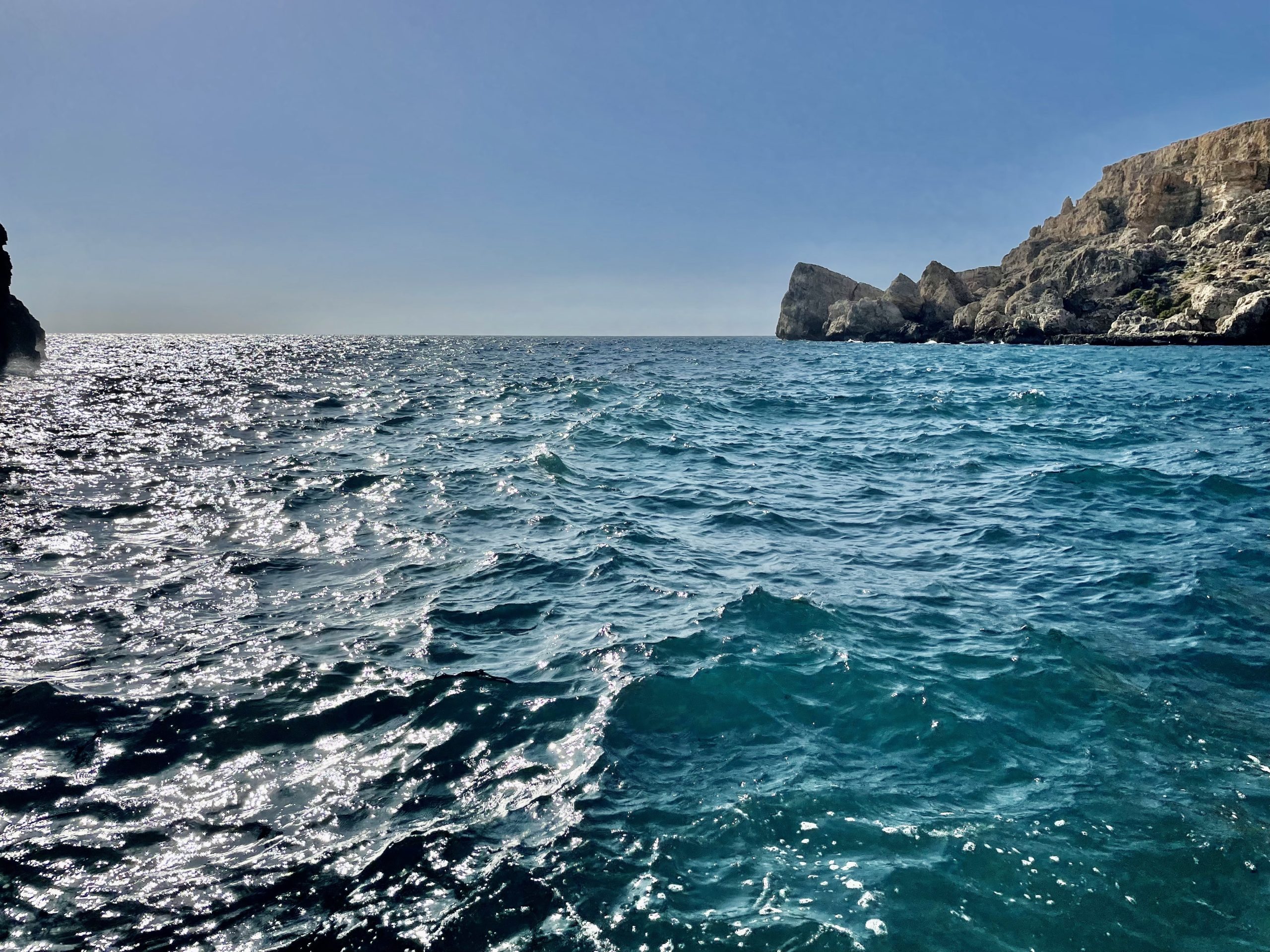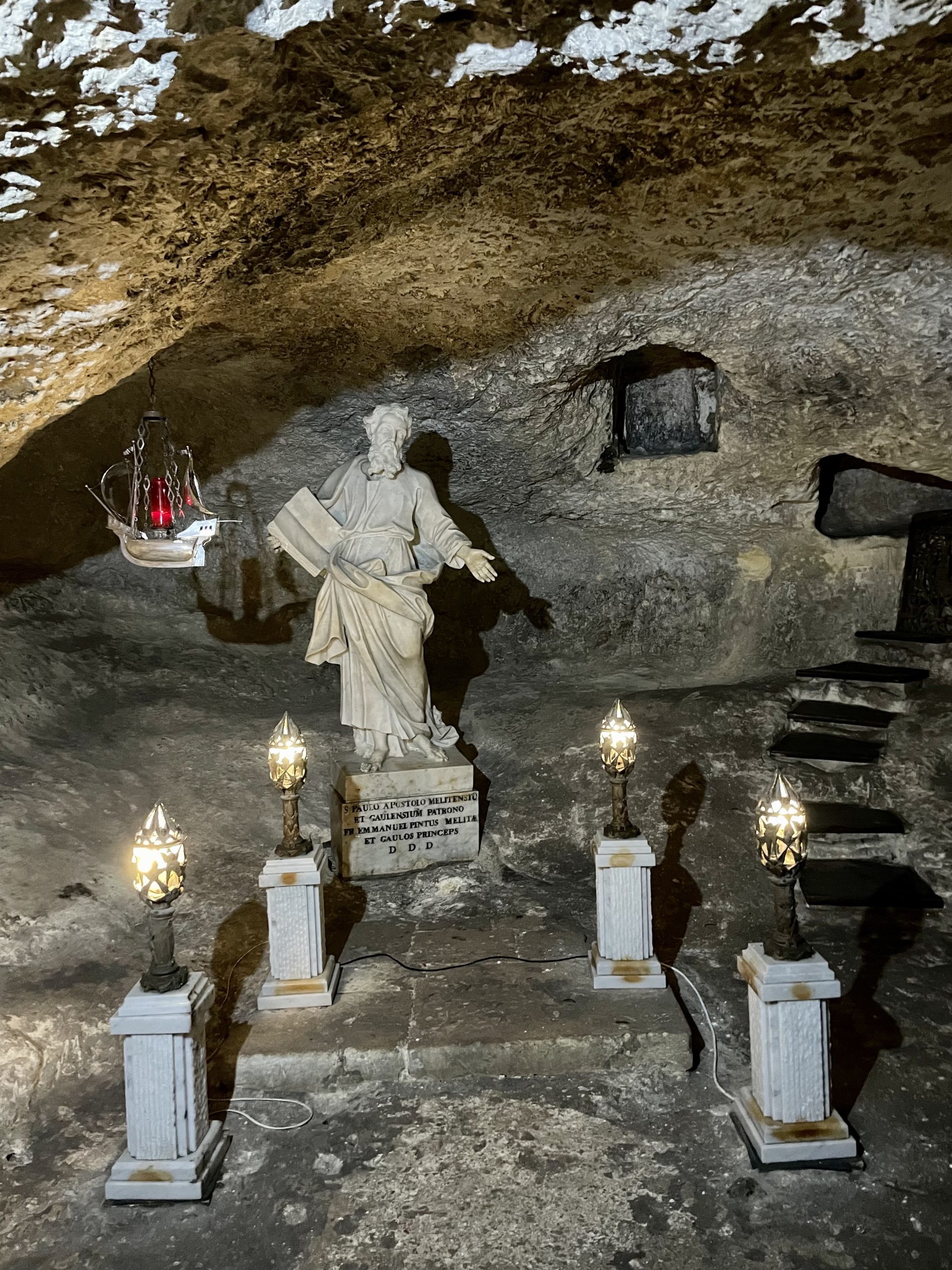
Lessons from Malta
Last month, we visited our little brother and his family in Malta. They moved there from South Africa just before the pandemic and this was the first opportunity we’ve had to see him in 11 years. It was emotional to reconnect with him and to meet his family and we were so thankful for our time together.
In anticipation of our visit to Malta, we studied more about the small island country in the Mediterranean. It’s a tiny island, only 17 miles wide and located about 65 miles from Sicily. I knew it was mentioned in the Bible and went back to read more of that story. You can read more about it in Acts 28, but essentially the story is that Paul was on a ship being transported to Rome when they experienced a catastrophic storm and shipwreck. The prisoners and all those on board had to swim to the shore of Malta for safety. Once Paul arrived on shore, he was to be transported to a jail cell to await his trial in Rome. The Maltese people were warm and friendly and welcomed the shipwrecked passengers with kindness. As they settled in for the night, Paul attempted to build a fire on the beach and was bitten by a snake. God healed Paul of that snakebite and then allowed Paul to heal many people who were sick in Malta at the time. Through these miracles, the people began to ask questions and Paul was able to share the gospel with them. Even though he spent several months in a small, damp jail cell on the tiny island, he was able to share the gospel, make Christ known and build relationships with the people of Malta.
Arriving to Malta after reading this story was a unique experience as a believer. I’ve not had the chance to visit many of the places that Jesus and his followers walked and ministered in the first century. One afternoon, we went swimming at a remote beach and I took a short break to sit on a rock and stare out at the rocky edges of the island. All summer, the verse, “to live is Christ and to die is gain,” kept going through my mind. The older I get, and the longer we serve both locally and internationally, the more I realize that life really is only and all about Jesus. Nothing else matters. Everything else will fade away.
I realized on that rocky beach in Malta though, why that verse has such powerful meaning. I grew up in America. I wasn’t wealthy, but in comparison to the rest of the world, I had more than enough. The hardships I endured were hard and my life had its share of trauma and pain. But I didn’t live in a constant state of hardship. And as I’ve grown older and been able to build a family and a life that I live, I sometimes ponder that last part of the verse…”to die is gain.” I understand it, but in a practical sense, it feels hard to comprehend. How is it gain to die when I would leave behind my beloved husband and girls? How is it gain to leave behind the beautiful creation that I enjoy? I love life. How could no longer living it be gain?
That’s when I pictured Paul. Much of his life and ministry after becoming a Jesus follower was marked with intense pain and suffering. He wasn’t taking the Sea Bird out to the coast of Malta to go snorkeling (real example of what I saw that day). He was being carried, in chains, to Rome to be held accountable for his “crimes” against the empire. He endured a shipwreck, near death and prison just in this one short example of his devotion and service to Christ. First century believers suffered in a way that I have never had to. The closest I can imagine to this is what is happening present-day in Afghanistan. Believers there have been left to either run, hide, or face the extremists who wish to eradicate them because of their faith in Jesus. This is the power of that verse… to live is Christ… living was hard. Living still is hard for many people around the world. Just simply continuing on in the day-to-day suffering of life is the sacrifice. First century believers knew that if they stayed alive, it was going to be hard. There would be suffering. They were to keep their eyes on Jesus, the author and perfecter of their faith (Hebrews 12:2). But to die was gain. They would be with their Lord. They would no longer suffer.
It feels like nowadays we go out of our way to avoid suffering. Yet, I am often most inspired by people who are suffering in this life. I’ve noticed that often those closest to Jesus are struggling with some kind of infirmity (much like Paul with his “thorn”). They have endured or are enduring some level of suffering and rather than push them away from Jesus, it has drawn them closer to him. Why? Perhaps it is because they recognize this life for the illusion it is, and understand that suffering in this life actually brings them closer to their savior. Scripture says we can join Jesus in his suffering. 1 Peter 4:13 tells us to rejoice in our suffering as partners with Christ, Philippians 3:10 calls us into the fellowship of suffering with Christ, 2 Corinthians 1:5 tells us that while the sufferings of Christ are ours in abundance, so is the comfort of Christ, and Matthew, Mark and Luke all tell us to deny our selves and take up our cross daily as we follow him. Perhaps this understanding that suffering will bring us comfort and communion with Christ, like so much else in the upside-down kingdom of God, is the only way to truly understand how living is the sacrifice and dying is the gift.


Leave a Reply